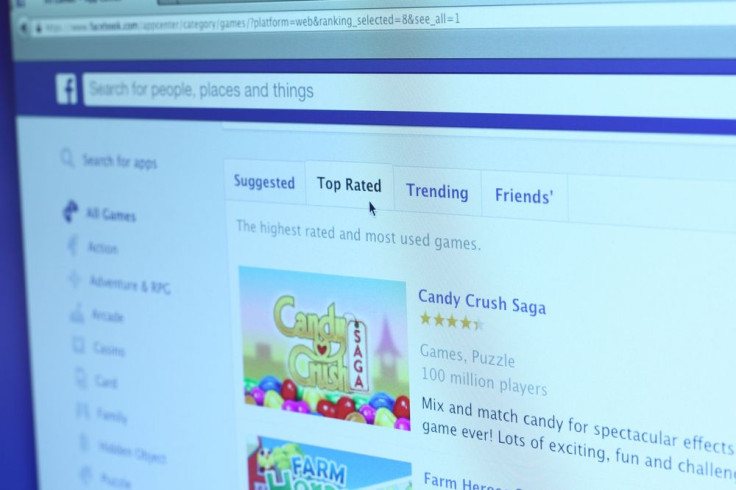The Power Of Social Influence: Facebook App Sales Are Mostly Driven By What Our Friends Are Downloading... Because We're All Copycats

If you remember, last month it was discovered that Facebook secretively manipulated the newsfeeds of almost 700,000 users in an effort to see how easily influenced our emotions were. We took the bait. As positive posts declined, so did the amount of positive status updates from users who saw them. As positive posts increased, so too did the amount of positive status updates. Though it was a slick trick — Facebook’s COO Sheryl Sandberg since apologized — the study proved how easy it is to influence large numbers of people. Now, a separate new study from researchers at three universities shows that the power of the newsfeed is strong, leading many people to exhibit a so-called “copycat” behavior.
The researchers, who were from Oxford, Harvard, and the University of Limerick, were interested in seeing how people were most inclined to download apps on Facebook. Were they more interested in apps when discovering them through “friends” or by finding them on a popular apps list? So, they developed a mathematical model that was able to determine the answer. With implications for future marketing techniques and large-scale surveys of human behavior, the researchers found that, as you might have expected, people were more likely to download an app after seeing that their friends downloaded it rather than after they found it on the list of popular apps.
“We hope that our paper can help serve as a guide for modeling complex systems and how data can be incorporated directly into such modeling efforts,” said co-author Mason Porter, an associate professor at the Mathematical Institute of Oxford University, in a press release. “The importance of mathematical modeling often seems to be lost amidst the overabundance of empirical studies, and I cannot stress enough that mathematics is also crucial to help illustrate how things work.”
It was their mathematical model that was able to determine what two of the study authors weren’t able to do in a 2010 study. The study involved a collection of data centered exclusively on the purchasing patterns of 100 million apps — they did not use personal data like the aforementioned study on emotions. The researchers wanted to determine who was buying them based on the popular apps list or seeing them in their newsfeed. The popular apps list also appeared in their feeds, but let’s face it, most of us scroll past it.
Their results were inconclusive, however, showing that people sometimes downloaded based on their friends’ activities, while other times they seemed to be unaffected. They also found that as an app reached a certain threshold of popularity, it became increasingly popular at a faster pace. But they couldn’t figure out whether this was because of friends or the popular list.
Their mathematical model took care of this problem. Using data from the 2010 study, they relied on trial-and-error to run simulation after simulation on supercomputers at the Irish Centre for High-End Computing. After 15,000 hours of computer processing, their model was as closely matched to the patterns seen in the 2010 study as they would ever be. As mentioned, they found that people were more likely to download apps based on their friends' download activities, rather than by seeing the app in a popular apps list.
“We have used sophisticated modeling techniques to show how it is possible to tease apart different causal mechanisms that underpin behavior even when the empirical data are purely observational,” said James Martin, director of complexity economics at the Institute for New Economic Thinking at Oxford, in the release. “This is significant because the assumption these days is that only experimental research designs can provide such answers. Here, we found that the “copycat” tendency plays a very important role in online behavior. This might be because users need to make quick decisions in information-rich environments, but other research has identified similar imitative behavior in the offline world.”
If you have a smartphone, then it should be easy to see how we’re likely to be influenced by the things our peers are doing both offline and online. Two perfect examples of this are the smartphone games Candy Crush and Angry Birds, both of which topped app store charts, and became popular mostly through word of mouth. On Facebook, many of us are prone to the psychological effects spawned by jealousy or envy of what the people on our feeds are doing. Girls who see photos of other friends they believe to be beautiful may suffer from a negative body image, while others just get depressed that their friends are living more active, adventurous lives.
The reason we’re all so easily influenced may come down to our upbringings. Growing up, every one of us goes through a developmental period where we copy the actions of the adults around us, regardless of whether they make sense or not. Though we eventually learn to do things in our own way, this form of learning still occurs, sometimes in more subtle ways — like when we’re thinking about downloading a game.
Source: Reed-Tsochas F, Gleeson J, Porter M, Cellai D, Onnela J. A simple generative model of collective online behavior. PNAS. 2014.



























